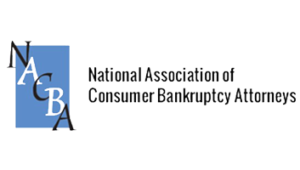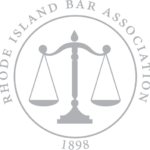Who files bankruptcy in Rhode Island and why ?
Recent studies show that since 2008 the number of bankruptcies filed by those making more than $60,000 per year has increased by 6.9%. With filings up 36.5% from what they were this time last year, many blogs and commentators are labeling America’s current economic condition a recession for the middle class. I can say that this is true for Rhode Island as well.
Many myths surround bankruptcy. One of these myths is that filing Chapter 7 is just an “escape route” for the financially irresponsible. Another is that filing Chapter 7 is only what truly poor people do. These bankruptcy myths , however, are easily refuted.
In fact, the economic recession has hit the Rhode Island real estate profession particularly hard. Today, more and more real estate developers and real estate agents are filing for bankruptcy protection due to the collapse of the housing bubble in the Ocean State.
Rhode Islanders have two basic bankruptcy options
Different kinds of bankruptcy exist for specific situations. For instance, Chapter 7 bankruptcy is usually filed by unemployed workers, or those whose income dropped due to loss of overtime. Chapter 7 filers must show that their gross income during the prior 6 months is lower than the median income of other similar sized Rhode Island households. Although a Chapter 7 bankruptcy erases most debts, it limits the amount of property a debtor is entitled to keep.
Because the RI and Federal exemption laws protect a vast array of property, very few Chapter 7 debtors lose any property in the process. Put your fears to rest by contacting a qualified Rhode Island attorney. He will explain what property can be protected and what cannot. In most cases, you will lose nothing.
If you have alot of property, and are unable to protect all of it in a Chapter 7 filing, a Rhode Island Chapter 13 bankruptcy allows you to pay equity above available exemptions to unsecured creditors. That way, you can keep your property if you can afford to do so. Chapter 13 creates a three to five-year payment plan for people who still earn a living (or have some regular source of income.) The payment plan consists mostly of secured debts such as car and mortgage payments. Also, unlike a Chapter 7 bankruptcy which requires up-front payment for attorney fees, Chapter 13 attorney fees can be part of the payment plan.
Debt-Settlement Scams and Tax Consequences
A word of warning to those considering debt-settlement firms instead of filing for bankruptcy: don’t. Although many debt-settlement companies pose as credit-saving alternatives to bankruptcy, most end up doing more harm to your credit than filing for bankruptcy would. This is because creditors will continue to report your missed payments to credit bureaus—even if you are in a “debt-settlement” program.
Also, settling debt for less than the full amount owed will trigger a 1099 statement reported to the IRS. In other words, you are walking into a tax liability. Interestingly, bankruptcy has shown to improve most client’s credit scores. It does so by stopping negative reporting and immediately improving your debt to income ratio.
Another problem with debt settlement firms is that they are subject to very little regulation. Debt settlement firms demand payment up front before all debts are settled. This means they have little incentive to settle a debt completely after they have already been paid. In short, “debt settlement” is far from guaranteed. Compare this with bankruptcy, an organized legal process with pre-defined results.
Timing is key when considering filing bankruptcy in Rhode Island. You must be careful to not file bankruptcy too early or wait too long. Instead, start by calculating your debts and estimating what it would take to pay it off on your own. If the amount is too large, or would require you to sacrifice your family’s basic needs to make a dent in your debt load, then consult an experienced consumer bankruptcy attorney.
If you have missed even one mortgage payment, car payment, or credit card bill, you need advice now. You don’t need to wait for your car to get repossessed or your mortgage to get foreclosed. Use your head, remain calm, and remember that bankruptcy is powerful and can restore order to a financial mess.





